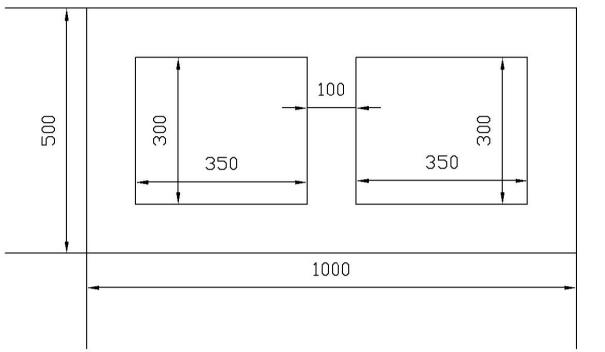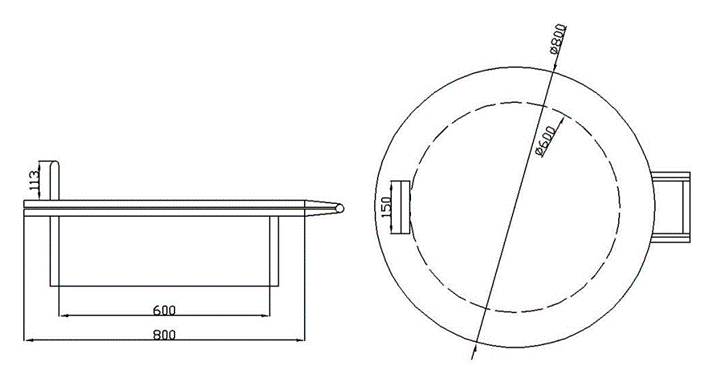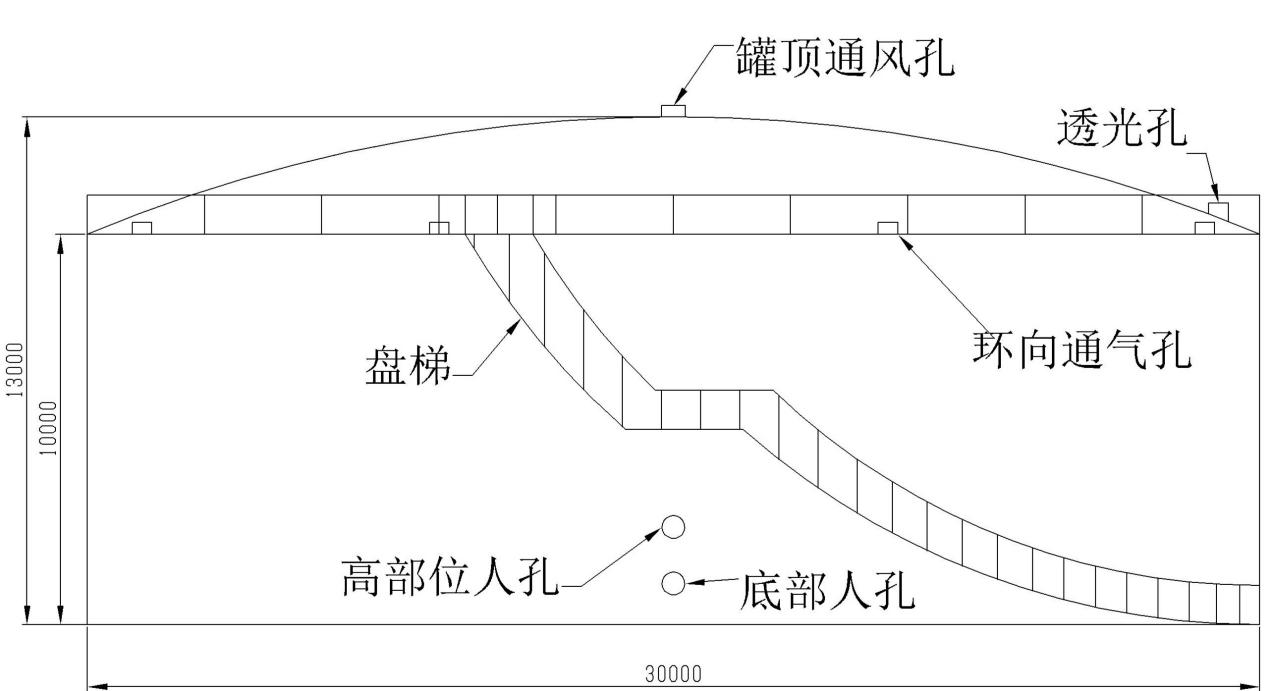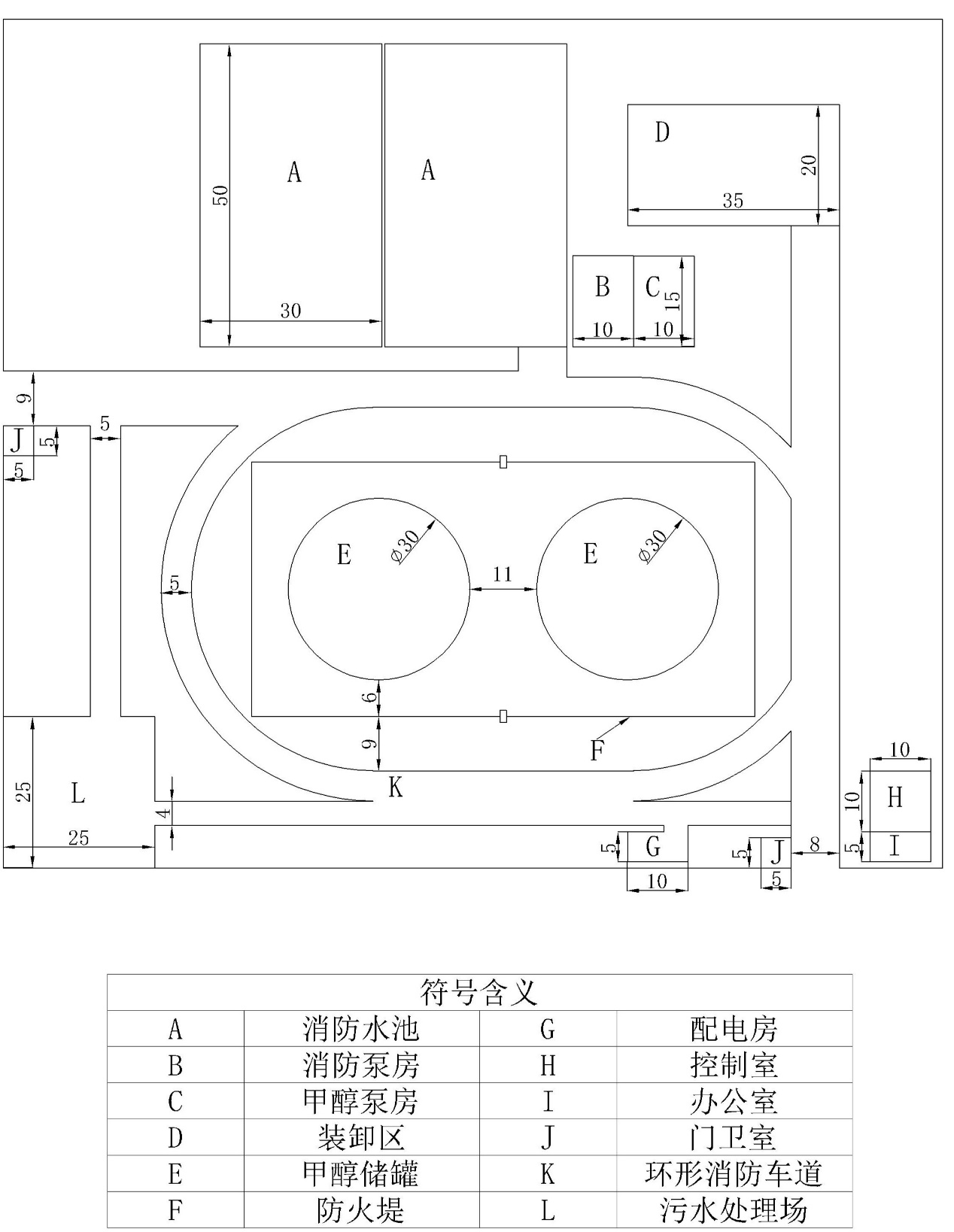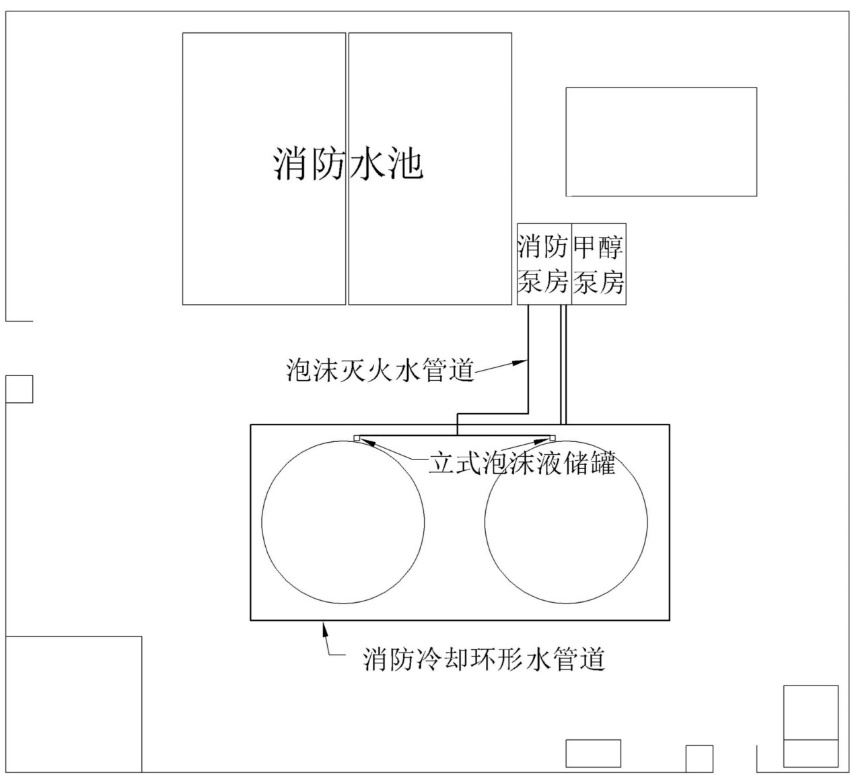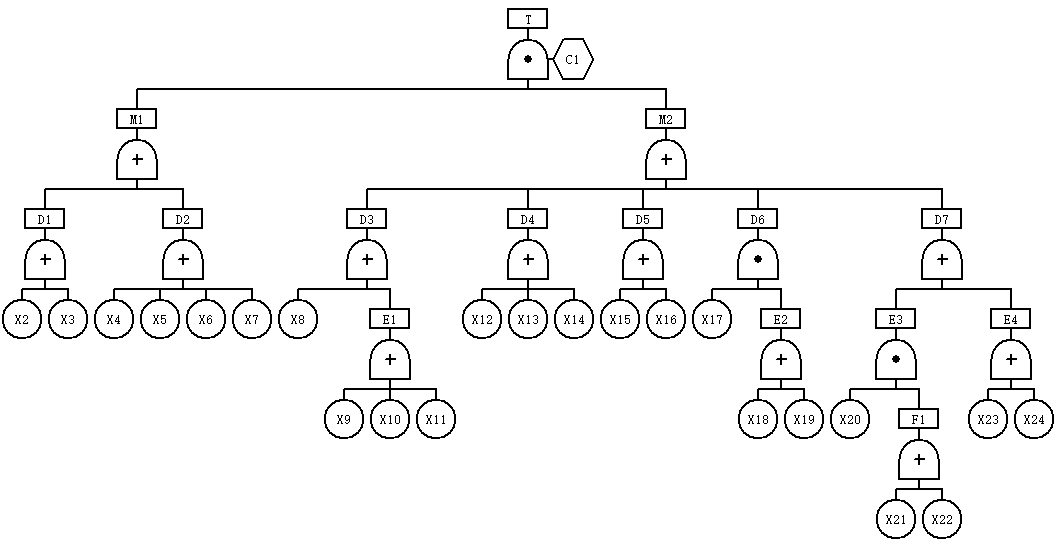10000m3甲醇储罐安全设计毕业论文
2020-04-15 21:30:14
摘 要
本设计根据甲醇的性质和各项规范要求,对甲醇罐区进行了设计。首先,对储罐的规格和强度进行了计算,选取了合适的钢材,并对安全附件进行了合理的设计。其次,对罐区内各建筑进行布置,保证建筑间安全间距,并选取了相应耐火等级。然后,对罐区进行安全设计,防火堤采用钢筋混泥土建造,消防部分选用移动式水枪和固定式泡沫灭火系统,冷却水管道采取环形管道。通过辨识与分级,确定甲醇罐区为三级重大危险源。最后,运用事故树法和道化学法对罐区做出定性定量评价,并根据安全评价的内容给出相关建议。
关键词:储罐 甲醇 安全设计 防火 危险有害因素
Safety Design of 10000m3 Methanol Storage Tank
Abstract
According to the nature of methanol and the requirements of various specifications, the design of methanol tank area was carried out. Firstly, the specification and strength of the tank are calculated, the appropriate steel is selected, and the safety accessories are designed reasonably. Secondly, each building in the tank area is arranged to ensure the safe distance between buildings, and the corresponding fire-resistant grade is selected. Then, the safety design of the tank farm is carried out. The fire embankment is constructed with reinforced concrete. The mobile part adopts a mobile water gun and a fixed foam fire extinguishing system, and the cooling water pipe adopts an annular pipe. Through identification and classification, the methanol tank area is identified as a three-level major hazard source. Finally, the qualitative and quantitative evaluation of tank farm is made by using fault tree method and Daochemistry method, and relevant suggestions are given according to the content of safety evaluation.
Key Words: Storage tank; Methanol; Safety design; Fire prevention; Hazardous and harmful factor
目 录
摘要 I
Abstract II
第一章 前言 1
1.1 甲醇储罐区设计背景介绍 1
1.2 甲醇的理化性质 2
第二章 甲醇的储罐设计 3
2.1 设计参数 3
2.2 甲醇储罐的选型与选材 3
2.2.1储罐选型 3
2.2.2 储罐选材 3
2.3 甲醇储罐的规格和强度计算 4
2.3.1 储罐规格 4
2.3.2 储罐强度 4
2.4 灌顶、浮盘和罐底 5
2.5 安全附件 6
2.5.1 通气孔 6
2.5.2 透光孔 8
2.5.3 液位计 8
2.5.4 浮盘支柱 8
2.5.5 导向防转装置 8
2.2.6 静电引出线 8
2.5.7 人孔 9
2.5.8 盘梯 9
第三章 甲醇罐区总平面布置 11
3.1 选址 11
3.2 罐区与周围设施的安全距离 11
3.3 罐间防火间距 12
3.4 人员作业区布置 12
3.4.1 门卫室 12
3.4.2 配电房 12
3.4.3 控制室、办公室 12
3.5 泵房 13
3.6 装卸区 13
3.7 污水处理场 13
3.8 消防水池 14
3.9 罐区道路布置 14
3.9.1 场内道路 14
3.9.2 消防道路 14
第四章 甲醇罐区的安全设计 16
4.1 防火堤设计 16
4.1.1 一般布置 16
4.1.2 间距和有效容积的选取 16
4.1.3 防火堤的选型 17
4.2 罐区消防设计 17
4.2.1 消防冷却用水量 17
4.2.2 泡沫灭火系统用水 19
4.2.3 消防给水管道的设计 21
4.3 防雷设计 22
第五章 危险有害因素辨识与分析 23
5.1 甲醇的危险性分析 23
5.1.1 易挥发性 23
5.1.2 易燃易爆性 23
5.1.3 流动、扩散性 23
5.1.4 热膨胀性 23
5.1.5 毒性 23
5.2 罐区的危险有害因素及预防措施 23
5.2.1 火灾 24
5.2.2 爆炸 24
5.2.3 中毒与窒息 24
5.2.4 触电 24
5.2.5 车辆伤害 24
5.2.6 机械伤害 25
5.2.7 高处坠落 25
5.3 重大危险源辨识 25
5.4 重大危险源分级 26
第六章 甲醇罐区的安全评价 27
6.1 事故树分析法 27
6.1.1 事故树绘制 27
6.1.2 事故树最小割集 28
6.1.3 结构重要度 29
6.2 火灾、爆炸危险指数 29
6.2.1 罐区火灾、爆炸危险指数计算 29
6.2.2 暴露半径和暴露区域的计算 31
6.2.3 危害系数的确定 32
6.2.4 火灾、爆炸危险指数评价法分析结果 32
6.3 甲醇储罐区火灾、爆炸危险主要控制措施 32
6.3.1 防止甲醇泄漏控制措施 32
6.3.2 点火源控制措施 32
第七章 结论与展望 33
7.1 结论 33
7.2 展望 33
参考文献 34
附件A
以上是毕业论文大纲或资料介绍,该课题完整毕业论文、开题报告、任务书、程序设计、图纸设计等资料请添加微信获取,微信号:bysjorg。
相关图片展示:
